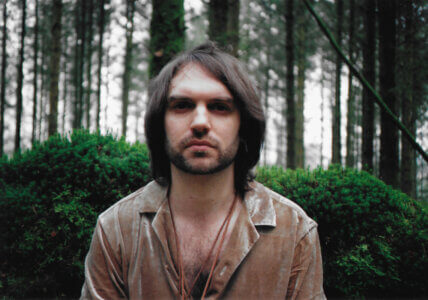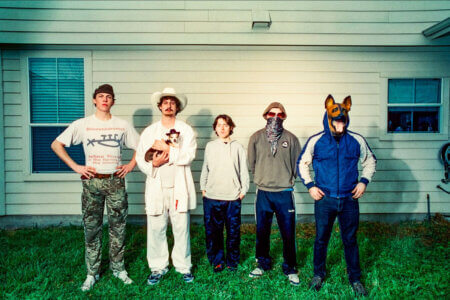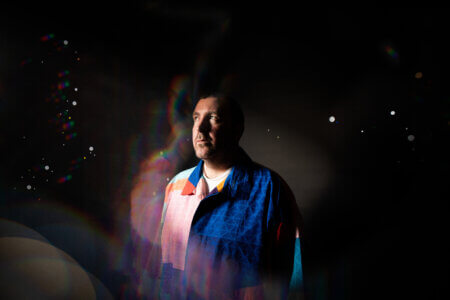
9.5
GENE
LA Priest
When I read that Sam Eastgate, also known Sam Dust, now known as LA Priest, had spent six months building a drum machine, I was skeptical. It felt like making homemade ketchup: sure you can do it yourself, but it’s an awful lot of work to make something that’s better from a factory. I stand corrected as GENE, the jaw-dropping beautiful masterpiece made by/with GENE, the drum machine, is one of the best things I’ve heard in a while.
In fact, as I repeatedly listened to GENE, I began to appreciate GENE. The way his rhythms are also melodies. The way he supports Eastgate’s glorious melodies. And even the way GENE knows when to step back and let Eastgate shine. GENE isn’t just a drum machine—he’s a character within the songs. Obviously, there’s precedent for anthropomorphizing musical instruments. B.B. King had his guitar Lucille, often serving as a surprisingly sassy counterpoint to his luxurious vocals. GENE goes beyond that, though, the Steve Urkel meant to provide background support who winds up stealing all of the scenes.
Like on “Monochrome.” The track begins with some gentle tom tom beats that gradually build in sound, speed and complexity, not quite laying down a groove, but rather lightly sketching one in pencil. As GENE begins to paint in the song’s foundation, a synth enters that’s a cross between a saxophone and a bee swarm. Eventually, two and a half minutes into the song, Eastgate’s vocals come in crooning over drums that have now become trippy. Eastgate exits and the synths return, playing you out of a song that’s infinitely interesting but less than five minutes long. But most captivating of all is how GENE is front-and-center, the track feeling full and complete, yet primarily driven by a drum machine.
In the interest of fairness, I want to emphasize that while creating GENE is laurel enough to rest upon, Eastgate has a gorgeous voice, capable of an impossible falsetto, but also soulful vocals. On “What Moves,” Eastgate and GENE flirt with 70s soul disco with Eastgate’s Prince-like vocals running up and down the vocaL register, Eastgate setting the song’s infectious melody while GENE handles a beat that’ll make you want to install square lights in your floor. Eastgate even gets in a percussive guitar solo before the song ends, maxing out the tune’s 70s capacity.
I’ve made a lot of the production here, because it’s truly astonishing, but the album is a work of art because of Eastgate’s songwriting. The melodies catch you by surprise, sometimes hiding in the songs and jumping out when you’re not expecting them. And even when the tracks get dense, Eastgate’s voice and humanity are always there, like an older sibling keeping an eye on you at the playground. And that humanity finds its way to GENE’s beats, which share Eastgate’s warmth and sensitivity. I thought a factory-manufactured machine could make better drum machines than a human, and I was wrong. But it’s worth noting that a machine and human working together can make beats every bit as good as human-only ones.
review by Steven Ovadia
Gene by La Priest comes out on June 5th, via Domino Records
Latest Reviews
Tracks
Related Albums
Related News
Advertisement
Looking for something new to listen to?
Sign up to our all-new newsletter for top-notch reviews, news, videos and playlists.













